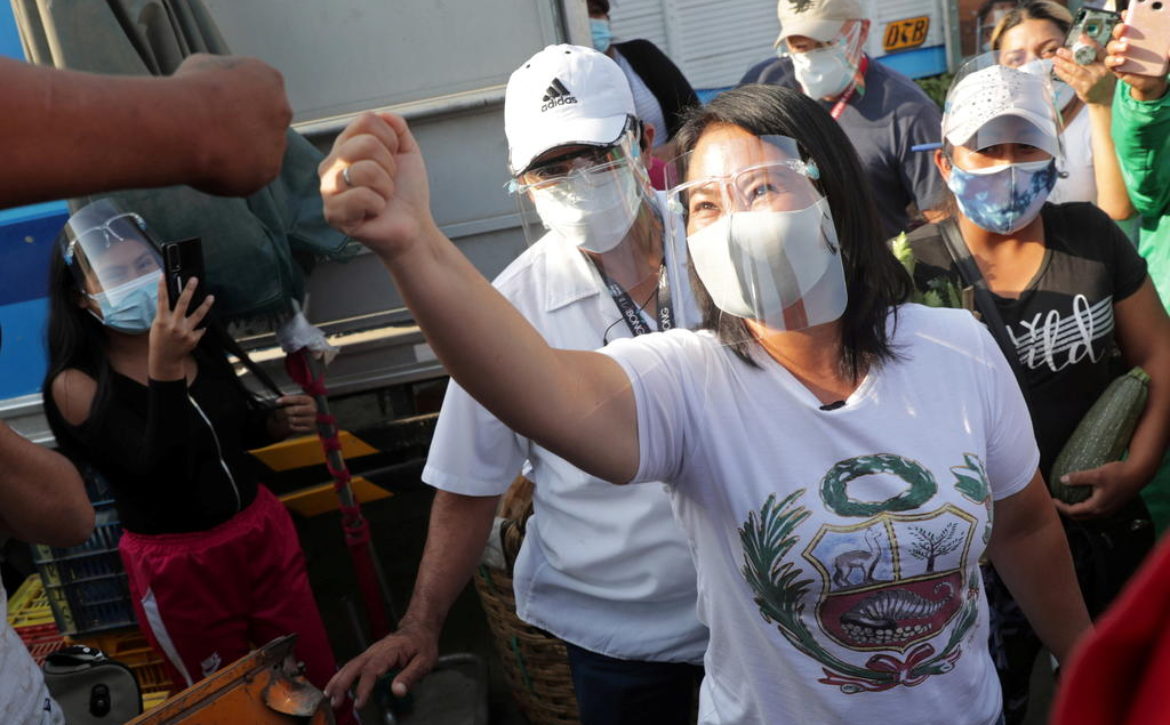
Peru presidential race tightens as candidates battle for poor, undecided voters
LIMA – Peru’s presidential election race is tightening a month ahead of a run-off vote in June, with socialist Pedro Castillo still ahead, while pollsters say the key battles are in poor, rural regions and in convincing a large group of undecided voters.
Frontrunner Castillo, a schoolteacher largely unknown to most Peruvians prior to the April first-round vote, garnered 43% of voting intentions in the poll, while Keiko Fujimori took 34%, according to pollster Ipsos Peru.
Fujimori, in her third candidacy for president of Peru, has closed the gap by two percentage points versus a similar poll by Ipsos two weeks prior. Another recent poll by Datum International also showed a tightening race.
Socialist Castillo’s support is strongest in the poorest regions of Peru, and ranges between 46% and 60%, the poll showed, while Fujimori polls strongest in the richest, but less populous, areas of the country.
“The great battle will be there, in the poorest socio-economic sectors,” Alfredo Torres, chief executive of Ipsos Peru, said in a television interview.
The Ipsos poll of 1,204 people conducted on April 30 with a margin of error of 2.8%, indicated that the share of undecided voters had fallen to 23%, from 27% two weeks prior. That margin still left plenty of room for surprises on June 6, the pollster said.
The coronavirus pandemic has ravaged the economy of the world’s No. 2 copper producer, pushing up poverty and unemployment, and a slow, corruption-plagued vaccination program has left many Peruvians frustrated and angry.
Castillo, who normally sports a wide-brimmed hat and has struck a chord with Peru’s less affluent voters, wants to rewrite the country’s Constitution to weaken the business elite and give the state a more dominant role in the economy.
Fujimori, a free-market proponent and daughter of ex-President Alberto Fujimori who is in jail for human rights abuses, also has pledged to distribute the country’s mineral wealth more evenly to the Peruvian people and to provide vaccines. REUTERS
Read More


